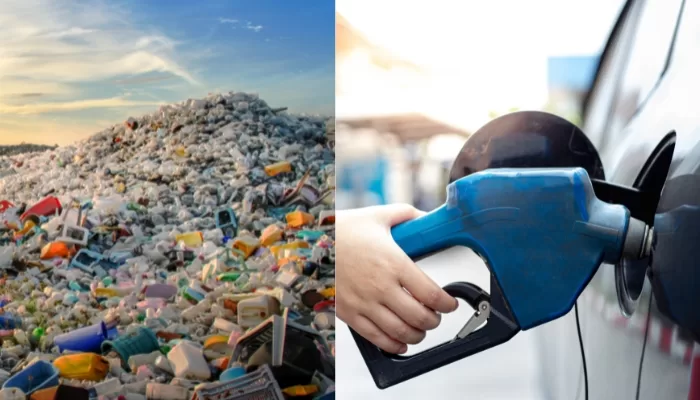Science & Environment
From Waste to Fuel: Is Plastic-to-Fuel Technology the Future?

- Plastic-to-fuel technology converts waste plastics into fuels but faces criticism for potential air and water pollution.
- Environmental groups raise concerns that this technology might exacerbate pollution and not address the root causes of plastic waste.
- The economic viability of plastic-to-fuel projects depends on efficiency and government support, with mixed outcomes expected.
Plastic trash is an increasingly global issue, with over 400 million metric tonnes produced annually. In the United States alone, the average person generates over 0.75 pounds of plastic waste per day. Despite the clear benefits of plastic in modern life, such as improved food storage and medical hygiene, its disposal remains a major environmental issue. Today, just 9% of plastic garbage gets recycled, while the remainder ends up in landfills, incinerators, or the natural environment, where it destroys ecosystems and endangers human health and the planet at large.
In response, plastic-to-fuel technology has developed as a possible answer to the waste dilemma. This method tries to transform plastic waste into fuels such as diesel or jet fuel via pyrolysis. While it promises to lessen reliance on fossil fuels and generate economic opportunities, the technology has sparked discussions over its environmental and economic implications. This article investigates the controversies surrounding plastic-to-fuel programs, particularly in Michigan, and explores the potential environmental and economic consequences.
The Potential for Plastic-to-Fuel Technology
At first appearance, plastic-to-fuel technology appears to be a promising answer to two significant issues: the massive amount of plastic trash and the world’s growing energy need. This technique, which converts waste plastics into fuel, has the potential to minimise the amount of plastics that end up in landfills or burnt, both of which emit harmful pollutants into the atmosphere. Furthermore, it provides an alternative to traditional fossil fuels, which may contribute to the fight against climate change.
Additionally, proponents of plastic-to-fuel efforts emphasise the economic benefits. In places like Michigan, these projects can create jobs, drive economic growth, and generate cash from garbage. The concept of converting an environmental problem into a profitable resource appeals to both corporations and governments.
Environmental Concerns
Despite its potential, plastic-to-fuel technology faces strong criticism from environmental groups. One of the most pressing concerns is the potential for air pollution. The pyrolysis process heats plastic trash to high temperatures, releasing carbon dioxide, particulate matter, and volatile organic compounds (VOCs) into the environment. These pollutants cause respiratory difficulties, poor air quality, and accelerate climate change.
Water contamination is another serious issue. The process of transforming plastic into fuel produces wastewater, which may contain hazardous chemicals such as heavy metals and organic pollutants. If not adequately handled, this effluent has the potential to infiltrate into local water systems, threatening aquatic life and putting human health at risk.
Furthermore, sceptics contend that plastic-to-fuel technology does not address the underlying source of plastic pollution: our ever-increasing plastic use. If plastic manufacturing continues to expand, demand for plastic-to-fuel may climb, resulting in even more environmental harm.
Economic Implications
The economic impact of plastic-to-fuel efforts is varied. On the one hand, these initiatives offer new job opportunities and the opportunity for economic growth in places like Michigan. However, there are some financial dangers. If the technology proves to be inefficient or pricey, businesses and investors may suffer huge losses.
Furthermore, the viability of plastic-to-fuel initiatives may be significantly reliant on government subsidies and incentives. Without funding, these programs may struggle to compete with existing energy sources, raising concerns about their long-term viability.
Global Perspectives: UK’s Concerns
The debate over plastic-to-fuel technology is not exclusive to Michigan. In the United Kingdom, environmentalists and concerned residents have expressed similar concerns. The UK faces its issues with plastic waste management and climate change, making this subject especially important to the British public.
As the UK continues to deal with plastic waste, the question remains: is plastic-to-fuel technology a long-term solution? Or does it merely transfer the issue from one area—landfills—to another, specifically, air and water pollution?
In the end, the success of these programs will be determined by their capacity to achieve both environmental and economic objectives while advocating long-term solutions to the global plastic trash challenge.



















































